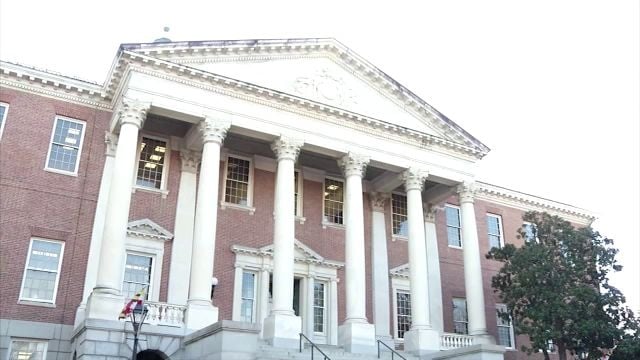Proposed Md. law would place legal power in citizen hands against water polluters
MARYLAND – The right to clean water is one of many topics of discussion during this year’s Maryland General Assembly session. Those responsible with protecting local waterways are putting their support behind the Clean Water Justice Act of 2024.
A New Right
The bill would give Marylanders a new right to file civil cases against accused illegal water polluters in state court.
“At a very basic level, it gives community members the ability to stand up for their right for clean water when it’s impacted by pollution,” said Choptank Riverkeeper, Matt Pluta. “Other opportunities for communities to get involved in this way were taken away from them, as a result of the recent Supreme Court case.”
SCOTUS Decision Impacts Local Waterways
Pluta is referring to Sackett v. EPA; a 2023 Supreme Court decision that addressed the scope of the Clean Water Act. As a result of that ruling, the amount of waterways protected under federal jurisdiction was reduced.
The problem in that decision, says Pluta, is that as certain waterways lost their federal protection, so did communities’ ability to take advantage of a civil suit provision.
“Now that the federal government has closed in on how many waterways they protect, that same provision isn’t applicable on those waterways that only the state regulates,” Pluta said. “In the overall realm of enforcement against pollution, citizens have an important role. And, at the federal level, that’s always been recognized through that citizen suit provision.”
How the Eastern Shore Fits in
The Eastern Shore’s flat topography makes it unique when it comes to water pollution and federal protection against it, says Pluta; and, only navigable waterways are now protected by the federal government.
“On the Eastern Shore, we have a lot of wetlands and even streams that run dry certain times of the year when we don’t get a lot of precipitation. But, when it does rain, those features – those wetlands and streams – are very much filled up with water,” Pluta explained. “In that period of time when [those areas are] wet, they’re providing a really big benefit to addressing pollution that could be flowing into those navigable waters.”
“Giving our community members the tools”
Pluta says, in an ideal world, state agencies would handle pollution offenses. However, he says, they can’t be everywhere, and changing administrations could change priorities.
“There is a really important role in the idea of community enforcement; giving our community members the tools, so that they can enforce against pollution that’s impacting their right to a clean river,” Pluta said. “Having it at that really basic community level ensures that any pollution that is causing impacts, or taking away peoples’ rights to clean water, could be recognized frequently. Then, we have an opportunity to work with those agencies to address the issue.”
Bill Faces Opposition
During a Tuesday hearing on the bill, it did face opposition. Dominic Butchko, Associate Policy Director for the Maryland Association of Counties, argued that the Maryland Department of Environment (MDE) already can, and does, enforce against illegal water pollution.
“When combined with the State’s liberal environmental standing standards, there is little chance an interested resident could not make their voice heard if there is alleged permit noncompliance,” Butchko wrote in his testimony.
Another point made against the legislation was that individuals already have the ability to sue illegal polluters in federal court. Butchko also testified that under the legislation, Marylanders would have more rights than under federal law.
“Unlike federal law, the bill appears to allow a separate action to be brought if the private plaintiff asserts that the ongoing government enforcement action is allowing for undue delay or unreasonable schedules,” Butchko’s testimony reads. “This may mean that a plaintiff who has slept on their right to intervene may nonetheless commence a separate action despite an ongoing government enforcement action.”
Fear of Frivolous Lawsuits
Generally, bill opponents argued that the bill is too broad, and would open up counties’ leadership to frivolous lawsuits. Butchko also argued that the legislation could open individual county employees working on disputed projects, for example, to being taken to court.
“Counties could expect legal challenges that were previously not economically feasible to become so and result in a significant increase in resident suits to challenge county land use decisions, fueled by attorneys seeking statutory recovery of attorney’s fees,” reads Butchko’s testimony. “Anyone could bring a case
against a local government if they merely don’t like the look or design of most projects involving water.”
Looking Ahead
The bill is being considered in the Maryland General Assembly’s Education, Energy, and the Environment Committee. It has yet to have a second reading.
Under the bill’s fiscal and policy note, it is noted that state expenditures and revenues may be significantly affected, depending on the scope and volume of any litigation under the bill. At minimum, according to the note, general fund expenditures for MDE may increase by at least $86,400 in Fiscal Year 2025, and at least $117,900 by Fiscal Year 2029.
If the bill passes, it would go into effect on October 1st, 2024.


